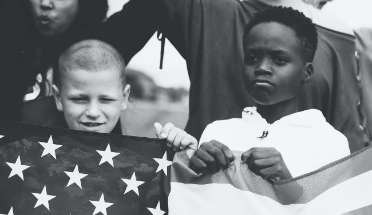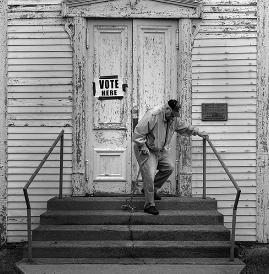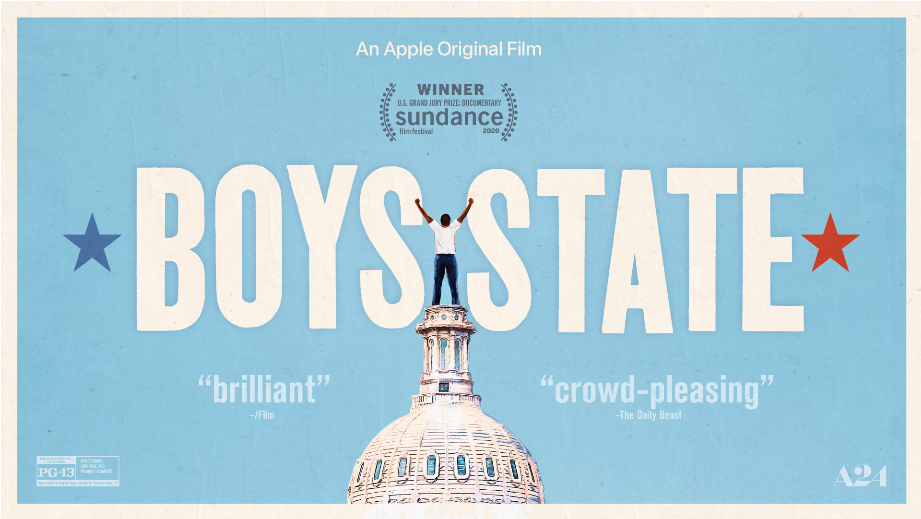Gray Areas: A Personal Struggle Around Policing America
By Christina Walsh
Now more than ever, nonpartisan political information has been of the utmost importance in my life. I wish I could say I can firmly stand in my role as a Democrat and blindly support all statements, headlines, and policies, but in the last few years I’ve found myself pulled in separate directions. I now know that contention in my political beliefs will continually hover over my daily life: my father, godfather, uncles, brother, and partner are all police officers.
Especially since the 2016 election, I’ve considered myself a strong Democrat. I’m against the views of the Republican party, but have recently found comfort knowing that some Americans still offer support to law enforcement. Empathizing with a Republican viewpoint was a tough pill to swallow, but it opened my eyes to the gray area in this black and white political world. Could I be a modern Democrat who built my adult life with a police officer? Yes, but it doesn’t come without challenges.
Facing institutional racism in this country is long overdue and change is necessary to shift the mindset of Americans coming to terms with their biases. I have done my best to stay informed to make political decisions that serve both my family and those fighting for their civil rights and safety. Police reform is necessary, but I also know that the lives of many rely on the officers serving their homes and communities. I don’t have many answers, but the more conversations I have, the more answers I get.
It’s been a year of hard discussions with family, friends, and my partner: how do I understand the perspectives of those whose shoes I will never stand in? I hurt for the marginalized and targeted black community, and I will never live as a person of color in America. I fear for the safety of my partner and family members who joined the police department to help others. I will never see the suffering an officer encounters when dealing with citizens on their worst days. Listening to those willing to speak about their lived experience has shaped my interpretation of differing opinions on the political spectrum.
If you are in a similar situation, I offer this advice: keep asking questions and seeking information from all people. I’ve learned more about police policy in the last year than I had in my entire life. By asking tough questions and confronting police mindsets, I’ve heard about policies, processes, and reasons for protocol in both dangerous and benign situations. I’ve also learned more about institutionalized racism and minority experiences than ever before. I know implicit bias exists even when there are active efforts to work against it.
I write this with the hope that you can offer grace and a listening ear to those struggling with contrasting views in their homes, relationships, and minds. To those who are reading this, know that in my experience hard conversations and honest inquiries can lead to empathy and understanding. Humans are complicated. It’s possible to disagree with people you love, listen when someone is trying to communicate their point of view, and support the right to individual opinions. As we all navigate through these divisive and unprecedented times, I ask you this: how will you lean into the gray areas of your political and personal life?



